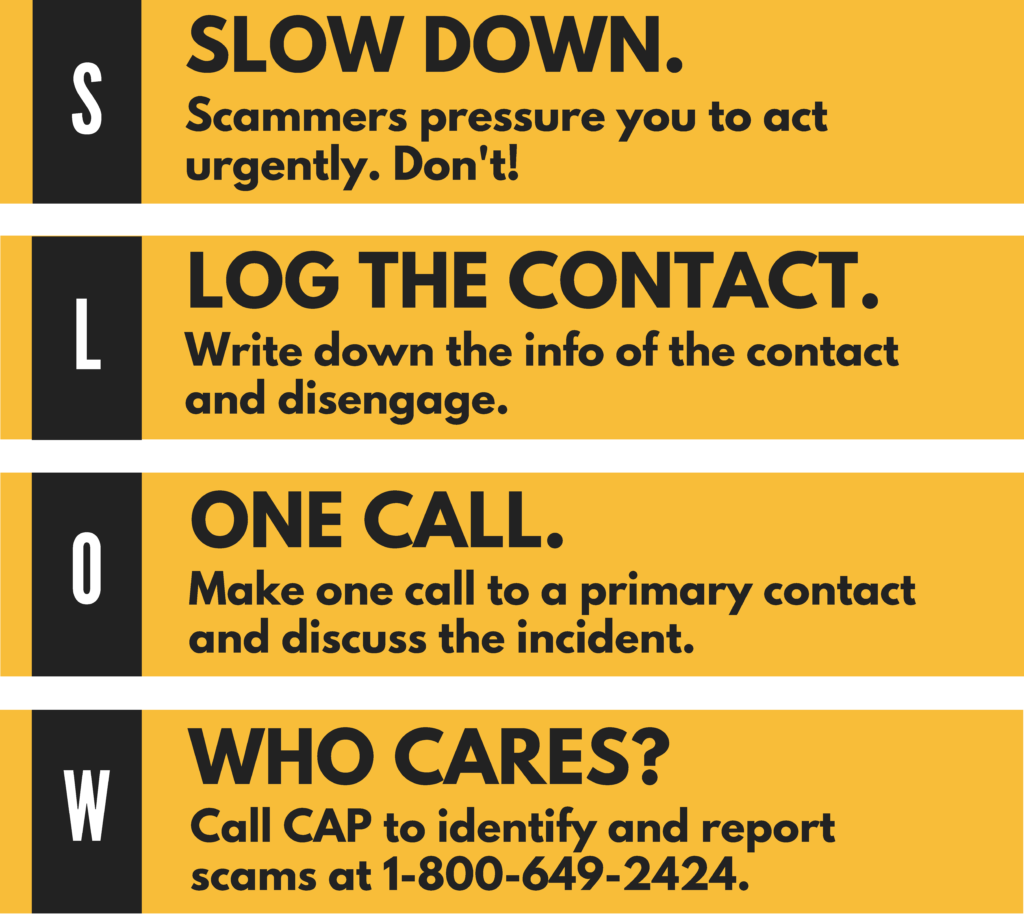You are busy in your work, helping people with critical problems when you get the call, “There is a bench warrant against you for not appearing in court.” Your first thought might be, “What does that even mean?” Your second thought: “How do I make it go away?”

The Consumer Assistance Program was recently notified about a rush of legal authority imposter scam calls reaching doctor’s offices in the Rutland area. In the scams reported, caller identification numbers were spoofed to appear as the “Rutland County Sheriff.” When doctors and staff questioned the legitimacy, they were told to “go ahead and call the sheriff directly.” When some did, the scam was confirmed. There was no bench warrant and paying these criminals on the spot would have resolved nothing anyway.
What has been quite a surprise to these practitioners, has presented itself as one of the more common scams state-wide. In 2021, CAP recorded 277 reports of the Legal Authority Imposter Scam and nearly $200,000 in cumulative loss by six Vermonters. In this scam, a call comes in unexpectedly, claiming to be someone of legal authority: a sheriff, police officer, law office, U.S. Customs and Border Protection, for example. The caller expresses an urgent distressing problem, often threatening arrest, and eventually requests payment for the problem to go away.
What to do?
- Never send callers money, especially in response to threats or claims of legal action.
- If you are concerned about a bench warrant, contact your legal counsel or the court directly.
- Hang up on all threats and report them.
Know:
- If you were going to be sued, the papers would be served without notice.
- Harassing debt collection practice is unlawful, and collectors aren’t allowed to make claims they can’t or won’t pursue. Learn more about your rights.
- Learn more about the process of law to avoid scams. Most typically, if ordered to pay an amount, even by the court, there will be a clearly outlined process to follow to ensure payment goes to the right place. When a scammer claims legal action, research what it is and is not.
What is a bench warrant?
If you fail to show up in court when required (usually you are served notice by mail or by a Sheriff by hand delivery prior to the required court appearance), the judge may order for you to be detained or arrested. A bench warrant is more likely to be granted when a criminal defendant is on bail, or a subpoenaed witness fails to show up for trial. The bench warrant essentially orders you to go appear before the bench. (Cornell Law, nolo.com)
How do I make a bench warrant go away?
If you actually have a bench warrant against you, contact your attorney or public defender. A bench warrant calls for your appearance in court, so your appearance in court is what is necessary–and not the payment of funds like the scammers suggest.
Stop all scams by following the SLOW Method.

Report scams to the Consumer Assistance Program (CAP) through CAP’s online scam reporting form or by calling 1-800-649-2424. Learn more about imposter scams on our imposter scam prevention video and resource page: ago.vermont.gov/imposter-scam
